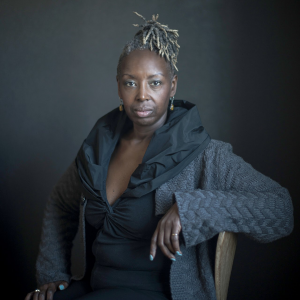
Kyra Gaunt
State University of New York at Albany
This talk is taking place as part of the graduate student conference "Character, Caricature, Characterization." Register for the Zoom link below, which will grant you access to both Dr. Gaunt's talk and the entire conference.
Music Colloquia provide a weekly forum for presentation and discussion of recent research by distinguished visitors and Case Western Reserve University faculty and graduate students in musicology, historical performance practice, and music education. All Colloquia begin at 4:00 p.m. (Eastern Time) and will be offered virtually through the Fall 2020 semester. Members of the CWRU and wider Cleveland community are heartily welcome, as are students and colleagues at other institutions.
About Dr. Gaunt:
Professor Kyra Gaunt, Ph.D. is a notable ethnomusicologist and innovative pedagogue. For over 20 years, Professor Gaunt's black feminist scholarship and "new jack" pedagogy in music, anthropology, and sociology has focused on challenging patriarchy, sexism, and white supremacy. Professor Gaunt joined the Department of Music at University at Albany in July of 2017.
About Dr. Gaunt's talk:
When we search for music on YouTube - the number one music discovery channel on the web and the number one destination for kids, we never think we are contributing to the sexual grooming and sexploitation of the most vulnerable and marginalized girls and their aspirational bedroom play. Tween twerking videos sit at the intersection of music monetization, search recommendations, and sexually-objectifying comments and disclosure tactics. This talk unpacks how girls turn up to music that is situationally banking on their consent to patriarchal violence and anti-Black sexism. By characterizing girls who twerk as tour guides in case studies of twerking videos and songs, we begin to see how YouTube’s incredibly commercialized, searchable, and sexualized structure for music streaming robs Black girls of their voice and consent. These processes may not be apparent until girls become mature adults. This research sounds an alarm to heighten our attention to their abuse.

